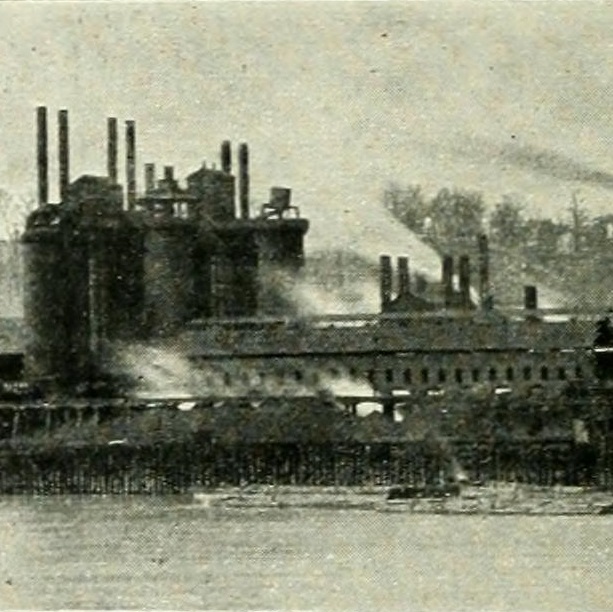
by Richard Subber | Feb 4, 2024 | Human Nature, Power and inequality, Tidbits
many may wear the crown…
“Many kings have sat down upon the ground;
and one that was never thought of
hath worn the crown.”
Book of Sirach (Ecclesiasticus), 10:5, KJV
If you think you’re so smart and important, try telling your neighbor’s dog what to do.
* * * * * *
Copyright © Richard Carl Subber 2024 All rights reserved.
Book review: “The Gentle Boy”
The Puritans, they had a dark side…
by Nathaniel Hawthorne
–
In other words: Poems for your eyes and ears with 64 free verse and haiku poems,
and the rest of my poetry books are for sale on Amazon (paperback and Kindle)
and free in Kindle Unlimited, search Amazon for “Richard Carl Subber”
* * * * * *

by Richard Subber | Jan 21, 2024 | American history, Book reviews, Books, Democracy, History, Politics, Power and inequality
Popular history: not exactly true…
Book review:
Origins of Modern America, 1860-1900
Allen Weinstein, ed.
Vol. 4 of Random House Readings in American History
New York: Random House, 1970
216 pages
Contains 10 essay-length segments addressing three themes: Civil War and Its
Aftermath, The New Society, and The Approach of Empire
The four decades that started with the American Civil War were a continuing tempest of change in every aspect of American life.
Origins of Modern America, 1860-1900 is a compact collection of 10 essays that will open your eyes to the significant currents and eddies in the great waves of transformation that marked the end of America’s first complete century. A lot of it wasn’t pretty.
Authors like Alfred D. Chandler Jr. and Stephan Thernstrom take a deep look at many iconic elements in the periods of American history that traditionally have been labeled as the Civil War, Reconstruction, and the Gilded Age. These essays were written in the middle of the 20th century, and these historians offer careful looks at many widely-held truisms that are not, in fact, wholly or even substantially true.
For example, Thernstrom examines “Urbanization, Migration, and Social Mobility in Late Nineteenth-Century America.” He gives evidence of several nuances and some inaccuracies in the concept of the development of a beleaguered, largely immigrant working class as industrialization burgeoned in the United States.
A large component of the working class were young American boys and girls who moved east to get off their parents’ failing farms. The political empowerment of the working class was muted and delayed in America (in contrast to the more volatile emergence of socialist activism in Europe) because so many of the blue collar workers were persistently transient—they didn’t stay in one job or place long enough to develop coherent political consciousness and clout.
Thernstrom starkly notes that “Lowell [a factory town] was terrible,” but for many European immigrants and Kansas farm boys the factory job and the tenement life were an improvement in their prospects for a tolerable life.
Organizing for worker’s rights was a tough proposition, and the wealthy factory owners and industry barons used their dominant power to resist it:
“In 1875, the Superintendent of one of Andrew Carnegie’s steel mills summed up his experience this way: ‘We must steer clear as far as we can of Englishmen, who are great sticklers for high wages, small production and strikes. My experience has shown that Germans and Irish, Swedes and what I denominate “Buckwheats”—young American country boys, judiciously mixed, make the most honest and tractable force you can find.’ ” (p. 149)
Indeed, there are many varieties of the American dream, all depending on your point of view.
Origins of Modern America offers good learning in compact, complementary, and compelling essays.
It will almost certainly change your mind about some key elements of American history
that you’ve always known to be true…
* * * * * *
Book review. Copyright © Richard Carl Subber 2024 All rights reserved.
Home Team: Poems About Baseball (book review)
Edwin Romond hits another homer…
–
Above all: Poems of dawn and more with 73 free verse poems,
and the rest of my poetry books are for sale on Amazon (paperback and Kindle)
and free in Kindle Unlimited, search Amazon for “Richard Carl Subber”
* * * * * *

by Richard Subber | Oct 24, 2023 | Politics, Reflections, Tidbits
a great smooch…
“…righteousness and peace
have kissed each other…”
Psalm 85, King James Version
First published in 1611, authorized by King James I of England
…indeed, a kiss for all seasons
* * * * * *
Copyright © Richard Carl Subber 2023 All rights reserved.
Book review: Ethan Frome
not being satisfied with less…
by Edith Wharton
–
As with another eye: Poems of exactitude with 55 free verse and haiku poems,
and the rest of my poetry books are for sale on Amazon (paperback and Kindle)
and free in Kindle Unlimited, search Amazon for “Richard Carl Subber”
* * * * * *

by Richard Subber | Oct 15, 2023 | American history, Book reviews, Books, History, Politics, Power and inequality
the birth of “big business”
Book review:
The Essential Alfred Chandler:
Essays Toward a Historical Theory of Big Business
by Alfred D. Chandler Jr. (1918-2007)
Boston: The Harvard Business School Press, 1988
538 pages
Chandler offers a deep and dispassionate inquiry into the genesis of “big business” and the “big multinational corporation” in the latter part of the 19th century and the first half of the 20th century.
There’s much of interest here, even for the casual student of history and the “non-business” types.
Much of the motivation and much of the opportunity for the development of what Chandler chooses to call the “modern business enterprise” was circumstantial and related to geography and the exigencies of human and animal labor.
The author chooses to avoid the legal/illegal, moral, and philosophical aspects of the rise of big business, and the vastly maldistributed benefits of the same.
* * * * * *
Book review. Copyright © Richard Carl Subber 2023 All rights reserved.
iambic pentameter, y’know?
da DUH, da DUH, and stuff…
“In search of”…my poem
–
As with another eye: Poems of exactitude with 55 free verse and haiku poems,
and the rest of my poetry books are for sale on Amazon (paperback and Kindle)
and free in Kindle Unlimited, search Amazon for “Richard Carl Subber”
* * * * * *

by Richard Subber | Sep 28, 2023 | Book reviews, Books, Global climate change, History, Politics, Power and inequality, World history
the unknowable future begins tomorrow…
Book review:
21 Lessons for the 21st Century
by Yuval Noah Harari, PhD (b1976)
New York: Spiegel & Grau, imprint of Random House, 2018
372 pages
Harari considers many of the questions that are plaguing 21st century liberal democracies, and the other folks, too.
Perhaps the predominant takeaway of 21 Lessons is that things are changing rapidly, and the unknowable future will be on us during our lifetimes.
If we do not try to deal more effectively and more urgently with the frightful challenges of burgeoning infotech and biotech, and the inescapable constraint of manmade climate change, and our own social, economic, and political shortcomings, we’ll unavoidably learn that we have no one to blame but ourselves.
Harari is a deep thinker, a provocative intellect, and a blunt writer who calls you to risk learning more truth.
* * * * * *
Book review. Copyright © Richard Carl Subber 2023 All rights reserved.
Book review: American Colonies
So many and so much
came before the Pilgrims
by Alan Taylor
–
As with another eye: Poems of exactitude with 55 free verse and haiku poems,
and the rest of my poetry books are for sale on Amazon (paperback and Kindle)
and free in Kindle Unlimited, search Amazon for “Richard Carl Subber”
* * * * * *

by Richard Subber | Sep 26, 2023 | Politics, Power and inequality, Tidbits
seldom…never…you pick it
“Power, once acquired,
is seldom voluntarily parted with.”
Thomas Hutchinson (1711-1780)
Loyalist Governor of the Province of Massachusetts Bay (1769-1774)
Make no mistake: Hutchinson was talking about the growing political power of the Sons of Liberty, not his own stake in the royal chain of command.
* * * * * *
Copyright © Richard Carl Subber 2023 All rights reserved.
How the Irish Became White (book review)
just another slice of American history by Noel Ignatiev
–
Writing Rainbows: Poems for Grown-Ups with 59 free verse and haiku poems,
and the rest of my poetry books are for sale on Amazon (paperback and Kindle)
and free in Kindle Unlimited, search Amazon for “Richard Carl Subber”
* * * * * *




